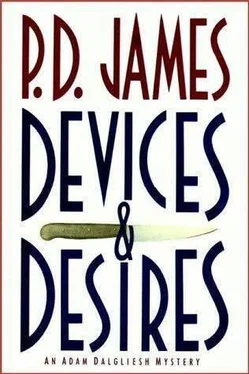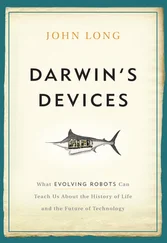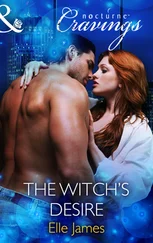Afterwards, when Reeves had been finally released, Oliphant said: 'He was as jumpy as a cat, sir. That's why I took my time over him. I think he's lying.'
It was, thought Rickards, typical of Oliphant both to assume and hope for the worst. He said curtly: 'Not lying necessarily, Sergeant; just frightened and embarrassed. Tough luck when your first night of passion ends in a not particularly subtle police interrogation. But the alibi seems firm enough and neither of them has an obvious motive.
And there's no evidence that either knew the details of the Whistler's little habits. Let's get on to someone who did. Miles Lessingham.'
Rickards had last seen Lessingham at the scene of Christine Baldwin's murder, since he hadn't himself been at the incident room when Lessingham had called in next morning to sign his statement. He realized that the sardonic attempt at humour, the controlled detachment the man had shown at the scene were mainly due to shock and distaste, but he had sensed, too, that Lessingham had a wariness of the police amounting to dislike. It was not an uncommon phenomenon nowadays, even among the middle classes, and no doubt he had his reasons. But it hadn't made him easy to deal with then and it didn't now. After the usual preliminaries Rickards asked: 'Were you aware of the relationship between Dr Mair and Miss Robarts?'
'He's the Director, she was Acting Administrator.' 'I meant the sexual relationship.'
'No one told me. But not being entirely insensitive to my fellow mortals I thought it likely that they were lovers.'
'And you knew that it had ended?'
'I assumed so. They didn't confide in me when it began and they didn't confide in me when it ended. You'd better ask Dr Mair if you want details of his personal life. I have enough trouble managing my own.'
'But you weren't aware of any difficulties caused by the relationship: resentment, accusations of favouritism, jealousy perhaps?'
'Not from me, I assure you. My interests lie elsewhere.'
'And what about Miss Robarts? Did you get the impression that the affair ended without rancour? Did she seem upset, for example?'
'If she was she didn't weep on my shoulder. But then mine is hardly the shoulder she would have chosen.'
'And you have no idea who killed her?'
'None.'
There was a pause, then Rickards asked: 'Did you like her?' 'No.'
For a moment Rickards was nonplussed. It was a question which he frequently asked in murder investigations and usually to some effect. Few suspects would admit to disliking the victim without blundering into an attempt at explanation or justification. After a moment's silence, during which it was obvious that Lessingham had no intention of amplifying his statement, he asked: 'Why not, Mr Lessingham?'
'There aren't many people I actually like as opposed to tolerate and she didn't happen to be one of them. There was no particular reason. Does there have to be? You and your sergeant may not like each other for all I know. It doesn't mean that either of you is planning murder. And talking about murder, which is why I assume I'm here, I have an alibi for Sunday night. Perhaps I had better give it to you now. I have a thirty-foot sailing boat berthed at Blakeney. I went out with her on the morning tide and stayed out until nearly ten at night. I have a witness to my departure, Ed Wilkinson who berths his fishing smack next to my boat, but no witness to my return. There was enough wind in the morning to sail and then I anchored, caught a couple of cod and some whiting and cooked them for lunch. I had food, wine, books and my radio. There was nothing else I needed. It may not be the most satisfactory of alibis but it has the merit of simplicity and truth.'
Oliphant asked: 'You had a dinghy with you?'
'I had my inflatable dinghy on the cabin roof. And at the risk of exciting you, I have to say that I also carried my collapsible bicycle. But I didn't put ashore either at Larksoken headland or anywhere else, not even for the purpose of murdering Hilary Robarts.'
Rickards asked: 'Did you see Miss Robarts at any time during your trip? Were you in sight of the beach where she died?'
'I didn't go that far south. And I saw no one, dead or alive.'
Oliphant asked: 'Do you make a habit of sailing alone at the weekend?'
'I don't make a habit of anything. I used to sail with a friend. Now I sail alone.'
Rickards asked him next about Blaney's portrait of Miss Robarts. He admitted that he had seen it. George Jago, the publican of the Local Hero at Lydsett, had put it up for a week in the bar, apparently at Blaney's request. He had no idea where Blaney normally kept it and he had neither stolen it nor destroyed it. If anyone had, he thought it was probably Robarts herself.
Oliphant said: 'And thrown it through her own window?'
Lessingham said: 'You think she would have been more likely to slash it and chuck it through Blaney's? I agree. But whoever slashed it, it wasn't Blaney.'
Oliphant asked: 'How can you be so sure?'
'Because a creative artist, whether he's a painter or a scientist, doesn't destroy his best work.'
Oliphant said: 'Miss Mair's dinner party; you gave your fellow guests a description of the WhisUer's methods including information we had specifically asked you not to divulge.'
Lessingham said coolly: 'One could hardly arrive two hours late for a dinner party without some explanation, and mine was, after all, unusual. I thought they were entitled to a vicarious thrill. Apart from that, to keep silent would have needed more self-control than I was capable of at the time. Murdered and mutilated bodies are your trade, of course. Those of us who have chosen less exciting jobs tend to find them distressing. I knew I could trust my fellow guests not to talk to the press and as far as I know none of them did. Anyway, why ask me what happened on
the Thursday night? Adam Dalgliesh was a guest at the dinner party so you have a more experienced and no doubt, from your point of view, a more reliable witness. I won't say a police spy: that would be unfair.'
Rickards spoke for the first time in minutes. He said: 'It would also be inaccurate and offensive.'
Lessingham turned on him with a cool 'Exactly. That's why I haven't used the word. And now, if you've no more questions, I have a power station to run.'
It was after midday before the interviews at the power station were completed and Rickards and Oliphant were ready to leave for Martyr's Cottage. They left Gary Price to cope with the inquiry forms and arranged to pick him up after the interview with Alice Mair which Rickards felt might be more fruitful with two officers rather than three. Alice Mair received them calmly at the door with no apparent sign either of anxiety or of curiosity, glanced perfunctorily at their identity cards and invited them in. They might, Rickards thought, have been technicians arriving later than expected to repair the television set. And they were, he saw, expected to interview her in the kitchen. At first it struck him as an odd choice but then, looking round, he supposed you could hardly call it a kitchen; more like an office, sitting room and kitchen combined. Its size surprised him and he found himself wondering irrelevantly whether she had knocked down a wall to provide such over-generous working space. He wondered, too, what Susie would think of it and decided that she would find it unsettling. Susie liked her house to be clearly defined by functions; the kitchen was for working, the dining room for eating, the lounge for watching television and the bedroom for sleeping and, once a week, for making love. He and Oliphant sat in two cushioned, high-backed wicker chairs on each side of the fireplace. His was extremely comfortable, gently containing his long limbs. Miss Mair took the chair at her desk and swivelled it round to face him.
Читать дальше












